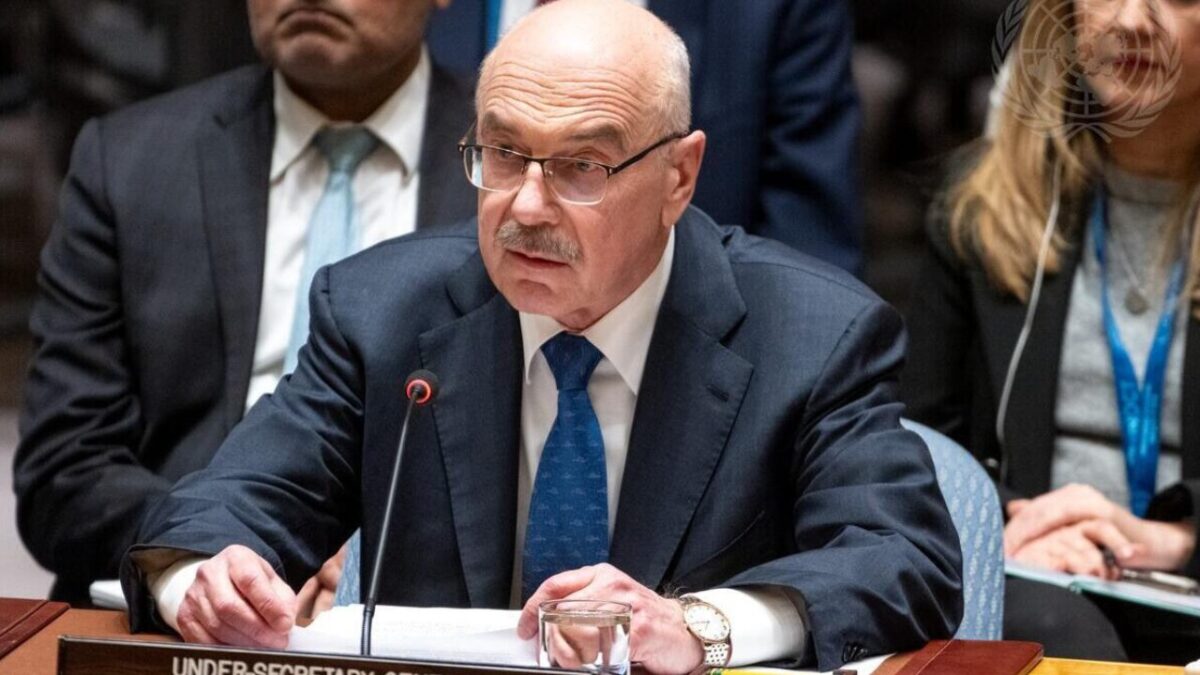
A senior UN official has urged countries to repatriate their nationals from detention camps and centers in northeastern Syria, warning that the deteriorating security situation in the region poses a growing threat.
Vladimir Voronkov, the UN Under-Secretary-General for Counter-Terrorism, told the Security Council on Monday that the “volatile situation” in Syria raises concerns about the risk of advanced weapons falling into the hands of terrorists. He noted that ISIS continues to use the Badia region as a base for external operational planning and as a key area for its activities.
“This instability is affecting camps, detention centers, and other facilities in northeastern Syria, where 42,500 individuals, some with alleged links to ISIS, remain detained, including 17,700 Iraqi nationals, 16,200 Syrian nationals, and 8,600 nationals of other countries,” Voronkov said.
He also highlighted that the pace of repatriation efforts has slowed, with only five countries having returned more than 760 individuals from Iraq and Syria in recent months. Iraq alone has repatriated nearly 400 children from northeastern Syria to a rehabilitation center.
Global Concerns Over ISIS Resurgence
The UN Counter-Terrorism Committee warned in a report to the Security Council that ISIS remains a serious global threat, with its operations extending beyond Syria and Iraq to Africa and Asia. The report emphasized that “no country can feel completely safe” from ISIS, calling for intensified international efforts to address the threat comprehensively.
“Terrorism poses a major threat to international peace and security, and no country can confront it alone,” UN spokesman Farhan Haq said during the briefing.
The report also raised alarms over the possibility of ISIS exploiting Syria’s transitional phase to re-establish a stronghold. It specifically pointed to the Syrian Badia region as a hub for the group’s operational activities.
Calls for Repatriation & Counterterrorism Measures
During the Security Council discussions, China and Russia called for countries to take responsibility for their citizens detained in Syria. China’s Permanent Representative to the UN, Fu Cong, stated that “the Syrian authorities must shoulder their responsibilities in combating terrorism and prevent the use of their territory as a base to threaten other countries.”
Similarly, Russia’s envoy, Vasily Nebenzia, urged all governments to repatriate their nationals who are ISIS fighters or family members, warning that prolonged detention in Syria could lead to further radicalization.
The French representative to the UN, Issis Jarraud-Darnaud, stressed the importance of continued counterterrorism efforts in both Syria and Iraq, saying, “We call on the Syrian transitional authorities to continue their efforts to combat terrorism and preserve the gains achieved against ISIS over the past years.”
Security Risks in Syrian Detention Centers
The Security Council’s discussions underscored the urgency of border security enhancements, financial restrictions on ISIS, and preventing the group from leveraging technology for recruitment and attacks. The UN Counter-Terrorism Committee reiterated that international cooperation remains the most effective way to curb the resurgence of ISIS and maintain global security. As repatriation efforts slow and security risks grow, the fate of thousands of suspected ISIS members and their families detained in northeastern Syria remains a pressing challenge for the international community.








